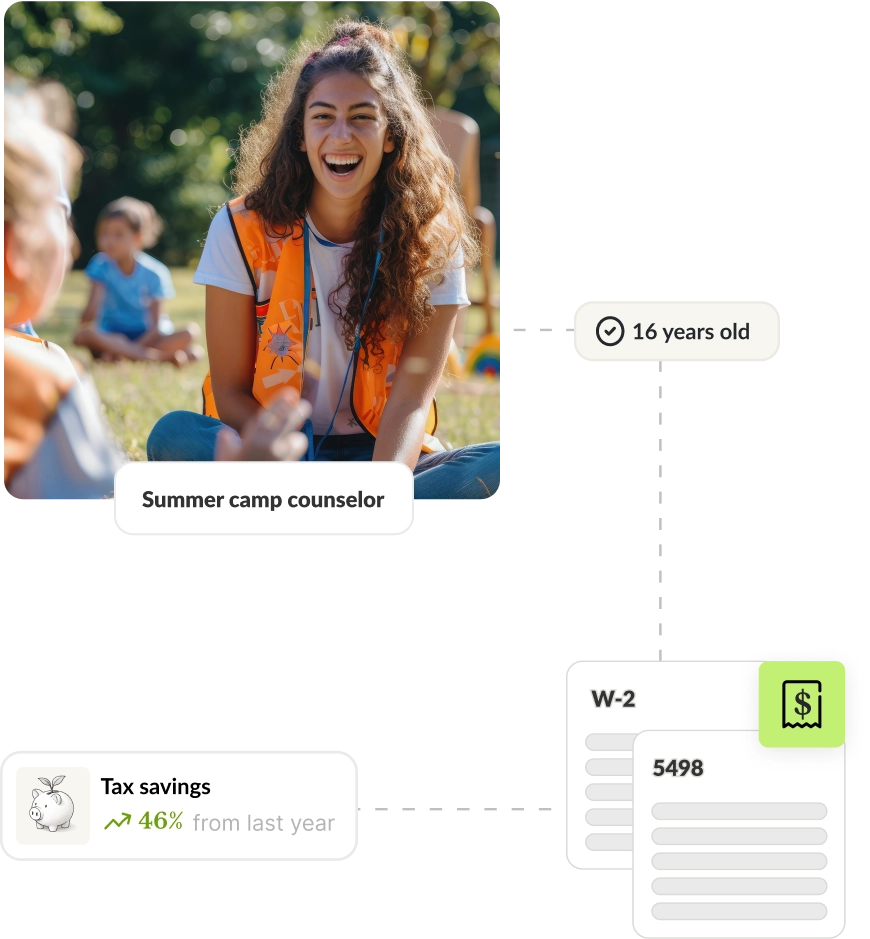2025 Connecticut State Tax Deadlines
Connecticut Individual income tax filing deadlines and extensions for 2025.
If you are a resident or have been involved in business operations within Connecticut, you might be required to file Connecticut State taxes. Connecticut maintains a progressive income tax system with rates ranging from 3% to 6.99%, making it one of the higher-tax states in the nation. This comprehensive guide outlines the key tax deadlines and considerations applicable to Connecticut in 2025.
Connecticut business tax deadlines for 2025
C Corporation deadlines and requirements
C Corporations in Connecticut must file and pay Corporate Income Taxes by May 15, 2026.
Filing requirements include:
- Complete Form CT-1120 (Connecticut Corporation Business Tax Return)
- File online with myconneCT portal
- File by mail must be postmarked by the due date
- Payment must be made by May 15, 2026
Extension to file taxes in Connecticut for 2025
The Extension Deadline for Connecticut corporate income tax returns is November 15, 2026. Connecticut automatically grants a six-month extension on filing corporate income tax returns without requiring separate forms. This is an extension to FILE, not an extension to PAY—payment is still due May 15, 2026.
Pass-through entities
Connecticut S Corporation and Partnership tax deadlines for 2025
S Corporations and Partnerships must file in Connecticut by March 16, 2026.
Required forms include:
- Form CT-1065/CT-1120SI – Connecticut Composite Income Tax Return
- Form CT-PET – Pass-Through Entity Tax Return (optional election)
Extension to file S Corporation and Partnership taxes in Connecticut for 2025
The Extension Deadline for Connecticut S Corporations and Partnerships returns is September 15, 2026. Connecticut automatically grants a six-month extension on filing pass-through entity tax returns without requiring separate applications. This is an extension to FILE, not an extension to PAY—payment is still due March 16, 2026.
Connecticut individual tax considerations for 2025
Filing requirements and income thresholds
Connecticut Individuals must file a State income tax return if their Connecticut adjusted gross income exceeds specific thresholds based on filing status.
The 2025 filing thresholds are:
- $15,000 for single taxpayers
- $24,000 for married filing jointly/qualifying surviving spouse
- $19,000 for head of household filers
- $12,000 for married filing separately
Estimated tax deadline for Connecticut 2025
Estimated tax payments are due:
- April 15, 2025
- June 16, 2025
- September 15, 2025
- January 15, 2026
Who must make estimated payments
You must make Connecticut estimated income tax payments during 2025 if you expect to owe $1,000 or more in Connecticut income tax after subtracting your withholding and credits. Individuals with business income, investment gains, or retirement distributions typically need to make quarterly payments.
Individual tax deadline for Connecticut 2025
You must file and pay Individual Income Taxes in Connecticut by April 15, 2026. Connecticut accepts electronic filing through the myconneCT portal, significantly reducing processing time.
Available forms include:
- Form CT-1040 – Connecticut Resident Income Tax Return
- Form CT-1040NR/PY – Connecticut Nonresident and Part-Year Resident Income Tax Return
Extension to file taxes in Connecticut for 2025
The Extension Deadline is October 15, 2026, to file your Connecticut Individual Income tax return. You can use Form CT-1040 EXT to request a six-month extension, though it's not necessary if you've already filed a federal extension. This is an extension to FILE, not an extension to PAY—payment is still due April 15, 2026.
Disaster relief extensions for Connecticut 2025
Federal disaster relief for storm victims
Due to severe storms, flooding, landslides, and mudslides that began on August 18, 2024, the IRS granted disaster relief extensions for Connecticut taxpayers in Fairfield, Litchfield, and New Haven counties. Affected Individuals and businesses had until February 3, 2025, to file various federal tax returns originally due during the disaster period.
State disaster coordination
Connecticut coordinates with federal disaster relief measures, providing similar extensions for State tax obligations when federal relief is granted for natural disasters affecting the State.
What Connecticut tax professionals need to know
Several key considerations make Connecticut's tax landscape unique for 2025:
Connecticut's progressive income tax system creates planning opportunities for higher-income taxpayers. The State offers various tax credits, including credits for property taxes and earned income, as well as special provisions for military retirement pay.
Electronic filing requirements
Connecticut encourages electronic filing for most taxpayers:
- C Corporations can file electronically through myconneCT
- Partnerships and S Corporations benefit from faster processing through electronic systems
- Individuals can use myconneCT for free electronic filing
How does Connecticut determine residency
Connecticut determines residency based on domicile and statutory residency tests. You're considered a Connecticut resident if you maintain a permanent place of abode in Connecticut and spend more than 183 days in the State during the tax year.
Connecticut's unique tax features for 2025
Pass-through entity tax election
Connecticut offers an optional pass-through entity tax for Partnerships and S Corporations. This election allows entities to pay State tax at the entity level, potentially providing SALT deduction benefits for partners and shareholders.
C Corporation surtax provisions
C Corporations may be subject to an additional surtax based on Connecticut's net income levels, creating additional compliance considerations for larger corporations.
Property tax credit
Connecticut provides a property tax credit for Individuals who own and occupy their principal residence, helping offset high local property tax burdens.
Sources
- Connecticut Department of Revenue Services Pass-Through Entity Information
- IRS Connecticut Storm Relief
- Connecticut Corporation Tax Information
Don't miss State tax deadlines – Join Instead
State tax deadlines are approaching fast. While you're scrambling to gather documents and figure out complex deductions, you could be missing thousands in potential savings.
Instead's AI-driven platform does the heavy lifting for you—automatically identifying tax strategies, monitoring your accounts for savings opportunities, and ensuring you claim every deduction to which you're entitled. No more guesswork, no more missed opportunities.
The material discussed on this page is meant for general illustration and/or informational purposes only and is not to be construed as investment, tax, or legal advice. You must exercise your own independent professional judgment, recognizing that advice should not be based on unreasonable factual or legal assumptions or unreasonably rely upon representations of the client or others. Further, any advice you provide in connection with tax return preparation must comply in full with the requirements of IRS Circular 230.
Please note that if any due date falls on a federal or state holiday or weekend, it may be adjusted to the next business day. Always verify current deadlines with the appropriate tax professional and authorities.
Looking for a different year?

























